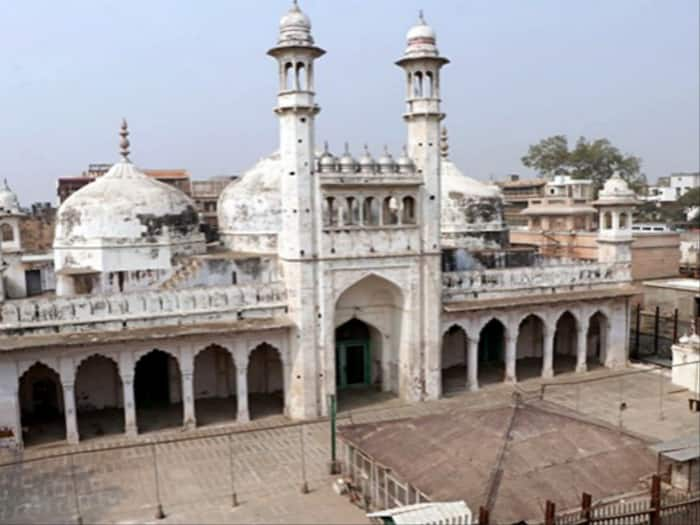
[ad_1]
The ASI released a comprehensive survey report stating that an ancient Hindu temple existed at the Gyanvapi mosque site before the present structure was built upon its ruins.

Gyanvapi Mosque: Security was beefed up at the Gyanvapi mosque on Friday, day after an ASI survey report revealed that the existence of “a large Hindu temple” which existed at the site “prior to the construction of the existing structure”.
The Archeological Survey of India (ASI) on Thursday released a comprehensive survey report stating that an ancient Hindu temple existed at the Gyanvapi mosque site before the present structure was built upon its ruins.
Following the ASI report, security measures were amped up at the Gyanvapi mosque today to prevent any untoward incidents in view of Friday congregational prayers, officials said.
They said that the media was told to keep distance from the site to ensure the situation remains calm and Friday prayers conclude peacefully.
The authorities were keen on avoiding any misinformation or unnecessary panic, news agency ANI reported. The authorities also made conscious efforts to manage any potential conflicts in the area.
Gyanvapi survey
On Thursday, the ASI released its survey report on the Gyanvapi mosque complex, revealing that a pre-existing structure appeared to have been destroyed in the 17th century, and “part of it was modified and reused,” adding that based on scientific studies, it can be said that there “existed a large Hindu temple prior to the construction of the existing structure.”
“The Arabic-Persian inscription found inside a room mentions that the mosque was built in the 20th regnal year of Aurangzeb (1676-77 CE). Hence, the pre-existing structure appears to have been destroyed in the 17th century, during the reign of Aurangzeb, and part of it was modified and reused in the existing structure,” the ASI report stated.
It said that based on “scientific studies/ survey carried out, study of architectural remains, exposed features and artefacts, inscriptions, art and sculptures.”
“It can be said that there existed a Hindu temple prior to the construction of the existing structure.”
Mosque built on remains on Hindu temple
Vishnu Shankar Jain, the lawyer who represents the Hindu side in the Kashi Vishwanath-Gyanvapi case Thursday claimed the ASI report suggests the mosque was built on the remains of a pre-existing temple.
Jain told reporters the copies of the 839-page report were made available to the parties concerned by the court late Thursday evening.
“The report makes it clear that the mosque, which stands adjacent to the Kashi Vishwanath Mandir, was built on the remains of a grand Hindu temple after it was demolished in the 17th century during the reign of Aurangzeb”, he said.
He also claimed that the survey report has sufficient evidence of the existence of a temple at the place where the the mosque now stands.
A district court in Uttar Pradesh’s Varanasi had ordered a comprehensive archeological survey of the Gyanvapi complex after Hindu petitioners claimed the 17th-century mosque was built over a pre-existing temple which was allegedly razed during the Mughal period.
(With ANI inputs)
[ad_2]